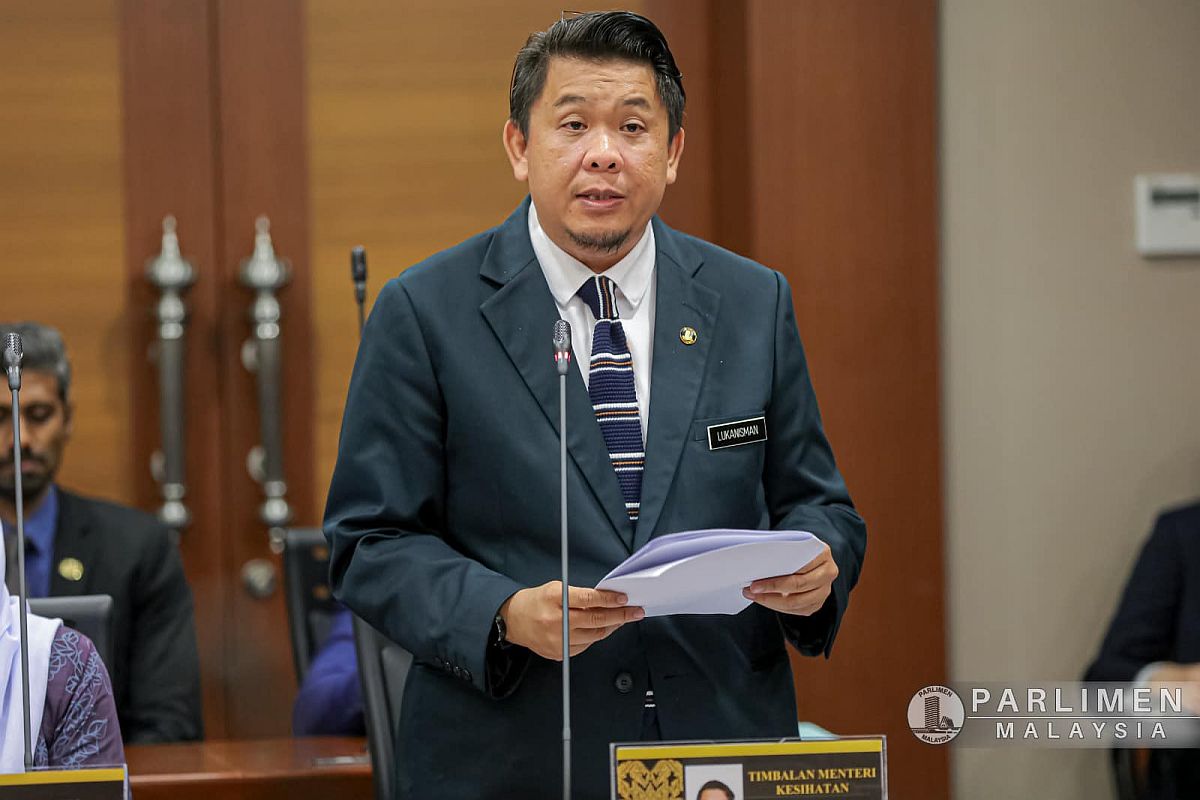KUALA LUMPUR, March 14 — In a shocking revelation in Parliament today, Deputy Health Minister Lukanisman Awang Sauni admitted that the tobacco and vape industry had successfully influenced the government to drop the generational end game (GEG) proposal.
The government had dropped the GEG provisions – which banned tobacco and vape products for anyone born from 2007 – from the Control of Smoking Products for Public Health Bill 2023 when it was tabled in the Dewan Rakyat for first reading on November 28 last year.
Before tabling the bill last November, then-Health Minister Dr Zaliha Mustafa retracted an earlier version of the bill that had been tabled last June that contained the generational prohibition on the sale to, purchase by, and smoking or use of both conventional and electronic cigarettes by anyone born from January 1, 2007.
The November bill – which was then passed by both Houses of Parliament and gazetted as the Control of Smoking Products for Public Health Act 2024 (Act 852) – replaced the GEG with prohibitions limited to minors aged below 18 years.
“On pressure from the industry – we need support from all quarters,” Lukanisman told the Dewan Rakyat during Question Time today, in response to Kapar MP Dr Halimah Ali who asked about lobbying from the tobacco and vape industry.
“If we look at our experience when we tabled the GEG, a conflict of views arose due to industry pressure – the industry entered Parliament and the industry met with Members of Parliament, which influenced the decision.”
Lukanisman’s open acknowledgement shows that Big Tobacco and Vape had successfully lobbied the Executive under Prime Minister Anwar Ibrahim’s administration – beyond individual MPs – to drop the GEG, since MPs were not given the opportunity to either pass or reject the generational tobacco and vape prohibition that was excluded altogether from the bill.
The deputy minister’s remark in Parliament also raises new questions about the veracity of Attorney-General Ahmad Terrirudin Mohd Salleh’s statement – prior to the tabling of the November version of the bill that excluded the GEG – that the Attorney-General’s Chambers (AGC) believes the GEG contravenes Article 8 of the Federal Constitution on equality before the law.
Lukanisman’s remarks today about how the tobacco and vape industry had, in fact, killed the GEG, also contradict then-Health Minister Dr Zaliha’s claim to reporters last November 28 that the AGC’s view about the unconstitutionality of the GEG was “the only factor” behind the exclusion of the provisions from the bill.
The deputy minister’s acknowledgement about industry influence behind the government’s abandonment of the GEG policy also confirms suspicions from both government backbenchers and Opposition MPs that were expressed during their fractious debate last November 29 on the bill, during which they had condemned the decoupling of the GEG from the bill.
Ironically, before admitting the influence of the tobacco and vape industry in Malaysia’s tobacco control legislation, Lukanisman told Parliament earlier from prepared text that the Malaysian government ensures compliance with Article 5.3 of the World Health Organization’s (WHO) Framework Convention on Tobacco Control (FCTC) as a Party.
Article 5.3 of the WHO FCTC, which Malaysia ratified in 2005, states: “In setting and implementing their public health policies with respect to tobacco control, Parties shall act to protect these policies from commercial and other vested interests of the tobacco industry in accordance with national law.”
Lukanisman also told the Dewan Rakyat that the government is suggesting plain packaging on cigarettes, besides controls on vape packaging.
Plain packaging laws standardise the appearance of cigarette packs by prohibiting all design features. The packs must appear in standard colours, while a brand name in a plain font may appear on the pack.
Draft regulations under Act 852 will be presented to Cabinet for approval. Health Minister Dzulkefly Ahmad told Parliament in a written reply last Monday that the Act would be enforced simultaneously with the enforcement of the regulations.








